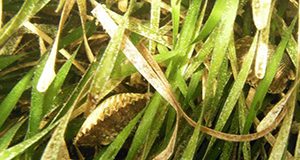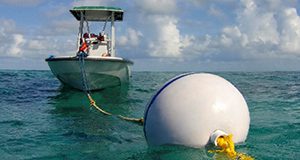Florida leads the country in the number of registered recreational watercraft, with between 867,463 and 921,834 vessels in the state. With so many people out enjoying Florida’s waters, there is significant risk of damage to sensitive coastal habitats such as seagrass meadows. This 4-page fact sheet written by Savanna Barry, Ana Zangroniz, and Joy Hazell and published by the UF/IFAS Florida Sea Grant College Program explains the importance of protecting seagrass meadows by responsible boating and gives tips to boaters about how to practice seagrass-safe boating.
http://edis.ifas.ufl.edu/sg151
Tag: Ana Zangroniz
Responsible Boating Protects Coral Reefs
Florida is often referred to as the boating capital of the nation, with more than 930,000 registered vessels. Florida’s numerous natural resources such as mangroves, seagrasses, estuaries and coral reefs are a major draw to resident and visiting boaters alike. Outdoor activities associated with boating, such as birding, fishing, swimming, snorkeling, and diving, contribute to the state’s economy. However, increased traffic on the water can bring potential risks, particularly to sensitive ocean bottom habitats such as coral reefs and seagrasses. This 4-page fact sheet written by Ana Zangroniz, Savanna Barry, and Joy Hazell and published by the UF/IFAS Florida Sea Grant College Program gives an introduction to the corals and coral reefs of Florida, provides ecological and economic information, and lists simple steps to ensure that safe boating practices reduce physical impacts on coral reefs.
http://edis.ifas.ufl.edu/sg152

